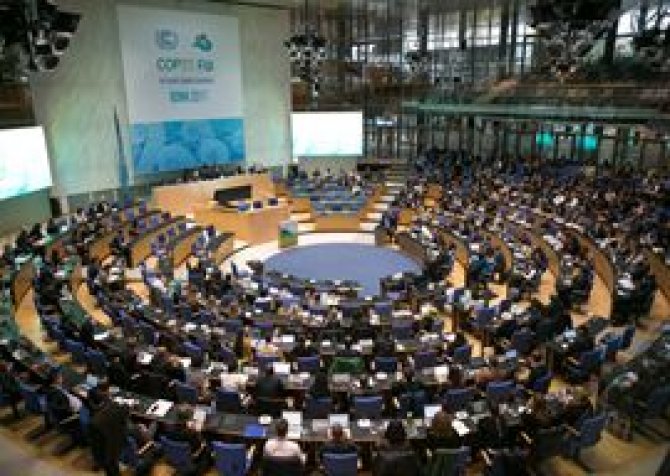Accountability and (Contested) Knowledge in Global Environmental Governance (WCSG)
Preface
The WCSG has developed the innovative incubator programme to foster scientific collaboration across the four Chair groups. In this impact story, the goals, outputs and impacts of one of the first WCSG incubator projects to be financed are presented: Accountability and (Contested) Knowledge in Global Environmental Governance. It received pilot funding in 2017 and participants have benefitted since from the collaborative work undertaken. The incubator team included both senior and junior WCSG researchers, with cross-cutting expertise in transparency and accountability in global environment governance, and the politics of knowledge for sustainability.
Aim
Why this incubator? Individual researchers at WCSG already had significant international visibility on questions of transparency, accountability and (contested) knowledge in sustainability governance. The incubator sought to leverage existing expertise but also to go beyond it, through fostering innovation and co-generation of knowledge through cross-disciplinary collaboration. The goal was to boost collaborative research across the WCSG chair-groups on learning-based accountability mechanisms in global sustainability governance, and the role of transparency and knowledge therein.
Context
What is referred to here as ‘learning-based’ accountability and transparency mechanisms are increasingly central within multilevel sustainability governance arrangements. These are evident in the 2015 Paris Agreement on Climate Change, the Convention on Biological Diversity, and the Agenda 2030 for Sustainable Development. In these governance arrangements, there is often no (direct) legal framework with targets and timetables to hold actors formally accountable for their agreed-upon aspirational goals. Learning-based accountability relies on a dominant assumption that information, together with procedural agreements, makes it possible for governance actors to ‘correct’ each other and encourages mutual learning for more effective goal achievement. This presumed role for transparency in fostering accountability faces various challenges, given the contested political contexts within which sustainability-related information and knowledge is produced, disclosed and used. This suggests an important ongoing research agenda on accountability, transparency and contested knowledge in global sustainability governance.
Pilot activity
Via a pilot activity supported by incubator seed money, participants developed a shared understanding amongst themselves, and extended conceptual and methodological innovation, on analysing learning-based accountability in sustainability governance. The goal to identify, analyse and eventually contribute to co-designing learning-based accountability mechanisms that could leverage knowledge so as to contribute to the achievement of aspirational sustainability goals.
The pilot activity focused on participant observation and analysis of state-to-state accountability and transparency mechanisms and processes being negotiated and operationalized during the 23rd Conference of the Parties to the United Nations Framework Convention on Climate Change (COP-23) in Bonn (November 6-18, 2017). Specifically, some incubator members observed in-person a process called the ‘Facilitative Sharing of Views’ (FSV) whereby developing countries presented the climate actions they are taking to the international community, with the aim to make actions visible and give an account thereof. The objective of this pilot activity was to generate common questions, and design and test appropriate methodologies, by which to analyse development and deployment of transparency–focused learning-based, accountability mechanisms in this g
I was at the early stage of my PhD program when this incubator started. I was invited to join as my research focuses on the same topic. We conducted innovative research, focusing on face-to-face account-giving process within global climate governance. We got to attend a UNFCCC inter-sessional meeting in Bonn, Germany in 2017, to directly observe the Facilitative Sharing of Views workshop, which is the manifestation of this account-giving process for developing country Parties.
Output
Secondly, an article in the international peer reviewed journal Climate Policy was published, as a key output of the collaboration: Performing accountability: face to face account-giving in multilateral climate transparency processes. The incubator team specifically chose Climate Policy because it targets both a scholarly audience and climate policymakers and practitioners as well.
Finally, the participants engaged with the broader scientific community. Below we provide a snapshot of a Twitter engagement with the Climate Policy article as soon as it was published, before authors’ had even tweeted about it themselves. Here a prominent climate social science scholar is noting its relevance, while highlighting key findings:


